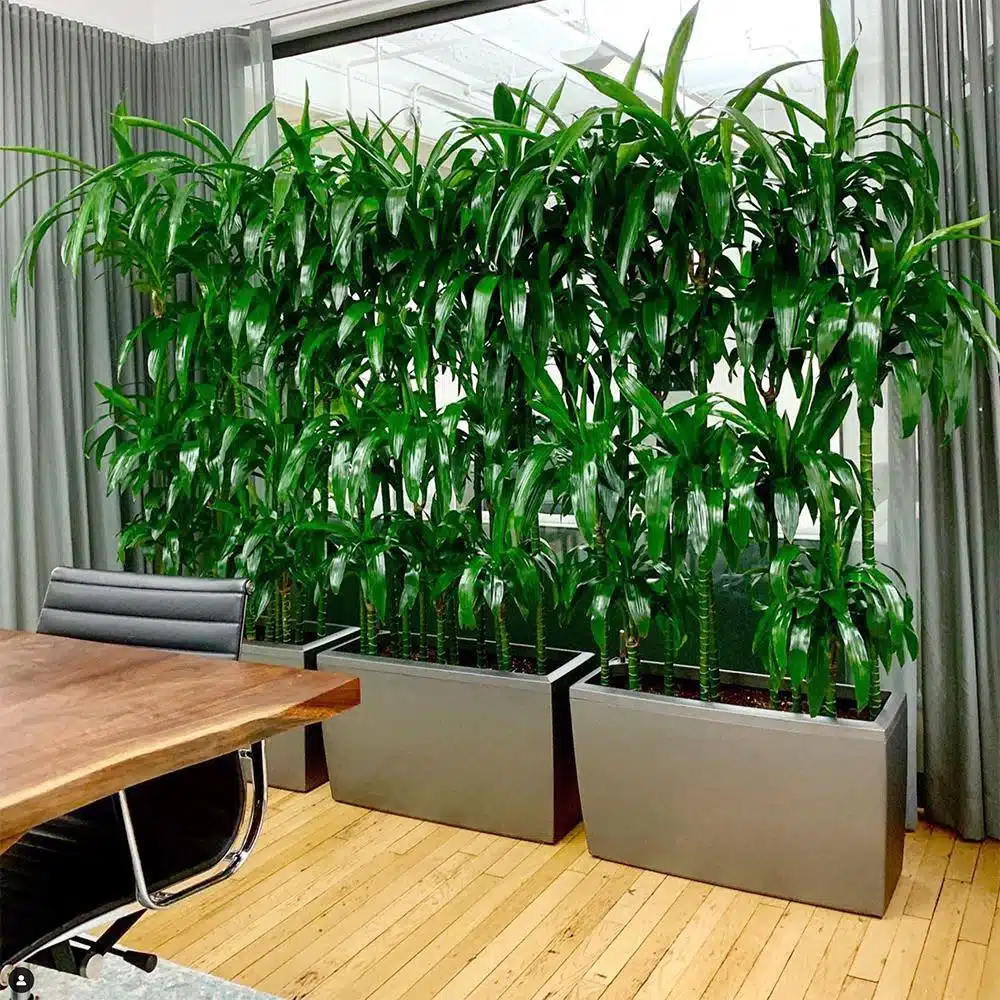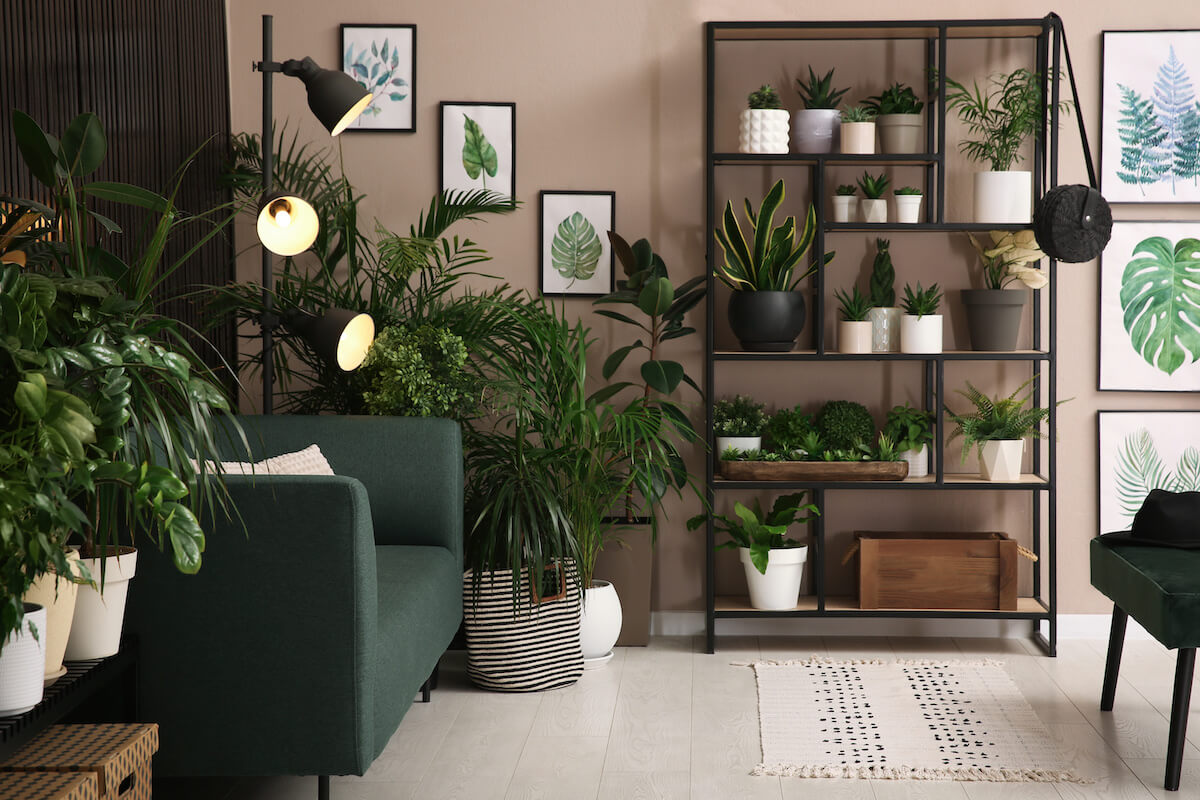Where to Place the Best Low-Light Indoor Plants in Your Home for Maximum Impact
Where to Place the Best Low-Light Indoor Plants in Your Home for Maximum Impact
Blog Article
Transform Your Home With Beautiful Low-Light Indoor Plants and Their Benefits
Incorporating low-light interior plants right into your home can significantly improve both the environmental and aesthetic high quality of your space. These plants, which grow in dim conditions, offer not just as attractive components but additionally as natural air purifiers, making them optimal for city dwellers or those with limited sunlight direct exposure. As we discover the different kinds of low-light plants and their benefits, you may locate unusual means to incorporate them right into your home that can change your surroundings in means you could not have actually anticipated.
Benefits of Low-Light Plants
Low-light plants provide numerous advantages for indoor settings, making them an outstanding selection for both novice and skilled gardeners. One of the key benefits is their flexibility to low-light conditions, permitting individuals to boost their space without the demand for comprehensive sunshine exposure. This particular makes them perfect for apartments, offices, and various other areas with limited natural light.
:strip_icc()/philodendron-b37371f3-c7eb0d91eedb4946b5854c08914dc82c.jpg)
Additionally, incorporating low-light plants into home décor can elevate the aesthetic allure of an area. Their lush foliage and varied structures develop a calming environment, adding to general health. The existence of greenery has actually been linked to decreased tension degrees and improved productivity, making low-light plants a practical selection for boosting both psychological and physical wellness in interior setups.
Top Low-Light Indoor Plants
While several interior plants prosper in bright light, several types are specifically appropriate for low-light conditions, making them ideal for various indoor spaces. One popular option is the Serpent Plant (Sansevieria), recognized for its striking upright leaves and durability, requiring marginal care. An additional superb option is the Pothos (Epipremnum aureum), which includes heart-shaped leaves and can route perfectly from racks or hangers, growing in low light and adding a lush touch.
The ZZ Plant (Zamioculcas zamiifolia) is commemorated for its shiny leaves and capability to endure disregard, making it perfect for busy way of lives. Similarly, the Peace Lily (Spathiphyllum) not only endures reduced light but also creates spectacular white blooms, enhancing any area's visual.
For a special touch, take into consideration the Cast Iron Plant (Aspidistra elatior), which certainly meets its name, prospering in the darkest edges of your home. Lastly, the Chinese Evergreen (Aglaonema) offers a selection of leaf patterns and shades while being extremely flexible in low-light problems. These plants not just beautify interior environments yet likewise add to air purification, improving your living room.
Treatment Tips for Low-Light Plants

Watering techniques are crucial; these plants typically choose a little completely dry problems. Overwatering can result in root rot, so make sure that the top inch of dirt is dry prior to watering again. Use pots with water drainage holes to permit excess moisture to escape.
Moisture is an additional essential element. Several low-light plants, such as ferns and peace lilies, advantage from higher moisture degrees. To increase moisture, take into consideration misting the fallen leaves or positioning a tray of water near the plants.
Fertilizing should be approached with care. Throughout the expanding season, use a weakened, well balanced fluid plant food monthly to support development, yet avoid fertilizing during the dormant winter season months.

Creative Ways to Display Plants
Interior plants can act as fascinating centerpieces in any space, boosting both visual allure and atmosphere. Creative display screens can boost the aesthetic influence of low-light plants, making them an essential part of your home style. One efficient technique is to make use of tiered plant stands, which permit you to showcase multiple plants at differing heights while optimizing flooring room.
Hanging planters are one more cutting-edge option, developing a feeling of depth and attracting the eye upwards. Consider macramé hangers or wall-mounted shelves to introduce a special appearance and style.
For an extra organized technique, usage geometric terrariums or glass containers to house your plants, adding a modern-day touch to your indoor garden. You can likewise repurpose classic items, such as teacups or wooden pet crates, for a diverse screen that shows your personality.
Enhancing Home Ambiance With Plants
Incorporating low-light plants right into your home not just enhances visual appeal but likewise adds substantially to the total setting. These plants act as all-natural decor aspects, introducing a great site feeling of peace that can change any area. The presence of greenery fosters a calming atmosphere, which is specifically useful in high-stress atmospheres such as office or living areas.
Low-light plants, such as snake plants, pothos, and ZZ plants, our website are not only cosmetically pleasing but also boost indoor air quality by filtering system contaminants. This double function boosts the ambiance even more, developing a healthier home (Best low-light indoor plants). The strategic placement of these plants can additionally affect the perception of area; for instance, high plants can draw the eye upwards, making ceilings appear greater and spaces much more spacious
Furthermore, differing structures and colors of vegetation include depth to indoor style, permitting for imaginative expression in home styling. Whether put on racks, in corners, or as focal points, low-light plants can elevate the mood of any kind of space. In recap, incorporating these plants right into your home is an efficient method to cultivate a warm, welcoming atmosphere while enjoying the benefits of improved air top quality and visual versatility.
Final Thought
Integrating low-light interior plants right into home environments uses many benefits, including enhanced aesthetic allure and improved air quality. These resistant plants, such as the Serpent Plant and Peace Lily, call for very little light and maintenance, making them appropriate for varied lifestyles. Their capability to filter pollutants adds to a much healthier living room, while their varied appearances and colors enhance interior decoration (Best low-light indoor plants). Ultimately, the addition of low-light plants promotes a calm and welcoming atmosphere, transforming any home into a peaceful oasis.
While lots of interior plants flourish in brilliant light, a number of types are especially fit for low-light conditions, making them suitable for various indoor rooms. One effective technique is to make use of tiered plant stands, which allow you to display several plants at differing elevations while taking full advantage of flooring room.
Low-light plants, such as snake plants, pothos, and ZZ plants, are not only visually pleasing however additionally enhance interior air high quality by filtering contaminants. Best low-light indoor plants. The calculated positioning of these plants can likewise affect the assumption of space; for circumstances, tall plants can draw the eye up, making ceilings show up higher and areas much more spacious
These resilient plants, such as the Snake Plant and Peace Lily, require minimal light and upkeep, making them suitable for varied lifestyles.
Report this page